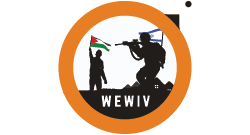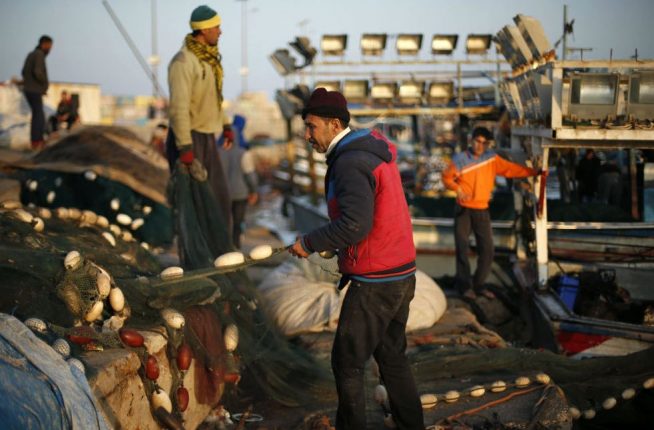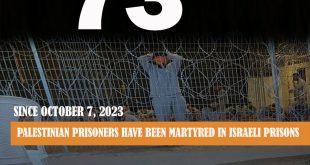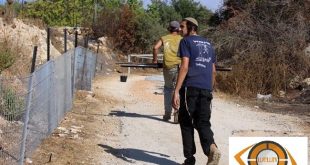In 2000, Gaza had about 10,000 fishermen. Today, the Gaza Fishermen’s Association has only some 4,000 fishermen registered, who are the breadwinners for approximately 50,000 persons. This figure, however, is misleading as half the registered fishermen are actually out of work, since their boats are out of commission and cannot be repaired due to the shortage in necessary raw materials. Ninety-five percent of Gaza’s fishermen live under the poverty line, defined as a monthly income of less than 2,293 ILS (roughly 600 USD) for a family of five. These families rely on humanitarian aid, and belong to the 80% of Gaza’s overall population who rely on humanitarian aid.
The decline of Gaza’s fishing sector is a direct result of Israel’s policy, which includes severe restrictions on marine access, fishing exports, and the entry of raw materials into Gaza, as well as harassment of fishermen:
a. Limited fishing zone:
In March 2016, Israel expanded the range in which it permits Gazans to fish from six to nine nautical miles off the Gaza coast. In June, it reduced the range back to six nautical miles (some 11 km). These restrictions are in place despite Israel’s obligation under the Oslo Accords to permit fishing up to 20 nautical miles off the Gaza coastline. Israel has never lived up to this obligation, and the widest range it has ever permitted since the Accords were signed was 12 nautical miles. Over the years, the range was repeatedly reduced; at times, it was as little as three nautical miles. During periods of fighting between Israel and Gaza, fishing is prohibited altogether. Notices of changes in the permitted fishing zone are provided to the Fishermen’s Association by the Israeli DCO. The Israeli navy also marks the boundaries with buoys. The shrinking fishing zone has led to overfishing in a small area, resulting in a decreased fish population and depletion of fish breeding grounds.
b. Shortage of raw materials, equipment, and spare parts for repairing fishing boats:
Israel prohibits entry into Gaza of materials that are essential for maintenance and repair of fishing boats, including fiberglass, steel cables, engines and spare parts. Israel claims that these items fall under its definition of “dual-use materials”, i.e. materials “that are primarily designed for civilian use, but are suitable also for military use”. Over the course of 2016, delegates from the Palestinian Ministry of Agriculture and the Palestinian DCO met several times with the Gaza DCO Commander, most recently on 10 June 2016. In these meetings, the Palestinian delegates provided the Israeli side with a list of items needed for the fishing sector. Not a single item on the list has been cleared for entry to date. According to the Department of Fisheries in Gaza’s Ministry of Agriculture, some 200 rowboats and five small motor boats are currently out of commission as the materials and equipment needed to repair them are unavailable.
c. Shootings and arrests:
Over the course of 2016, B’Tselem received dozens of reports from fishermen that their boats had been struck by Israeli naval fire. Some of the fishermen were injured and others arrested. According to the testimonies, soldiers forced them, at gunpoint, to take their clothes off and swim over to the navy vessels, regardless of the weather. The fishermen’s testimonies, as well as GPS records on their devices, indicate that some were arrested although they hadn’t sailed beyond the military-permitted fishing zone.
Fishermen brought on board navy vessels were taken to Ashdod port in Israel, where they were interrogated while blindfolded and handcuffed. Their boats were confiscated. Following the interrogation, which often focused on attempting to gather intelligence on Hamas operatives, most fishermen were sent home without their boats. The Gaza Fishermen’s Association has reported that since April 2016, Hamas has arrested and interrogated Gaza fishermen who were returned by the military to Erez Crossing, holding them for several days.
According to the Department of Fisheries in Gaza’s Ministry of Agriculture, the Israeli military arrested 113 fishermen over the course of 2016. Of these, 107 were released after interrogation and six are still in custody. Ten more fishermen were injured by Israeli navy fire. The Department of Fisheries has also reported that during 2016, the military confiscated 38 motorized Hasake rowboats and eight non-motorized ones. Only ten have thus far been returned to their owners, all in April. In 2015, 73 fishermen were arrested and 22 Hasake rowboats confiscated. At present, 14 boats are out of commission due to damage caused by the Israeli navy, either by shooting or during confiscation of the vessel. Department of Fisheries data also indicates that the direct losses suffered by Gaza fishermen in 2016 as a result of Israeli navy fire or confiscation of boats and equipment amounts to some 0.5 million USD.
d. Restrictions on exporting catch to Israel and selling it in the West Bank:
Prior to the blockade imposed on Gaza in 2007, fishing was a thriving sector. Fishermen sold their catch in the West Bank and exported it to Israel, making a decent living. As part of the blockade, Israel has banned the sale of fish from Gaza in the West Bank or its export to Israel, devastating the fishermen’s livelihoods. In 2014, Israel began allowing restricted sales in the West Bank once again, but under fastidious limitations that raise the cost of the process, and therefore the price of the goods. Current sales of fish caught in Gaza to the West Bank are much lower than they were prior to the blockade.
Israel’s practices with respect to Gaza’s fishing sector illustrate why it is impossible to accept its contention that it ended its responsibility for the fate of Gaza’s residents and for what takes place there upon completing implementation of its disengagement plan in 2005. Though Israel removed its regular military presence and settlements from Gaza, it continues to control many aspects of daily life there from a distance. The terrible harm it inflicts on fishermen has no justification, and is yet another facet of the cruel blockade policy that Israel has been implementing in Gaza for a decade.

 العربية
العربية עברית
עברית Türkiye
Türkiye Русский
Русский Français
Français We Watch Israeli Violations Specialized website in monitoring and documenting Israeli violations against Palestinians
We Watch Israeli Violations Specialized website in monitoring and documenting Israeli violations against Palestinians






